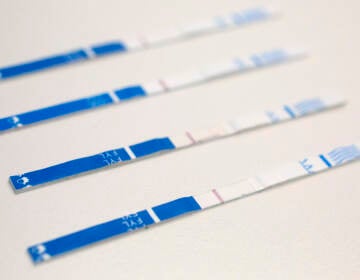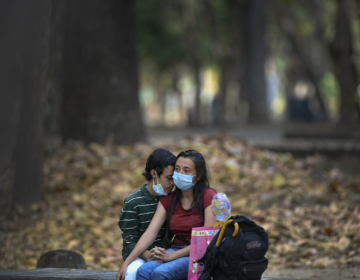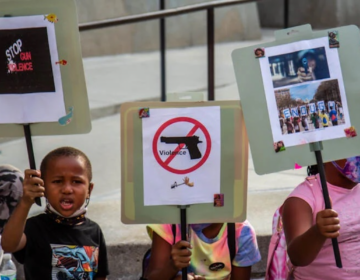Helping doctors help Pa. kids without over reliance on psychiatric drugs
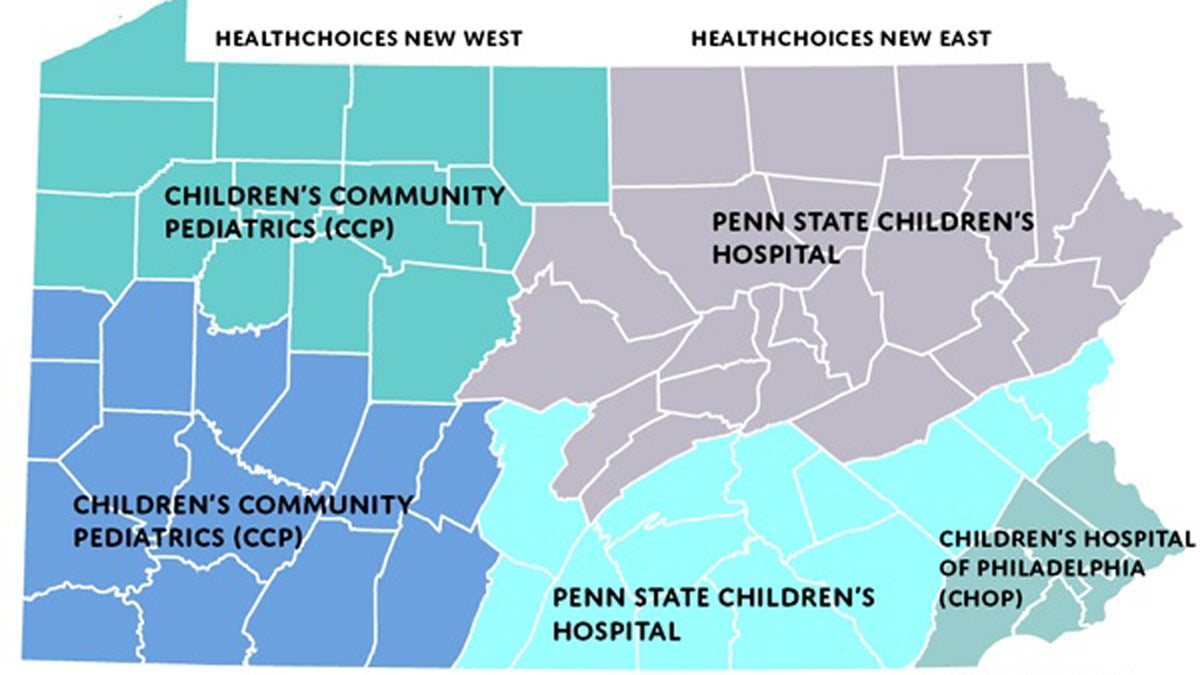
Tips Hotline MAP (PA Dept of Human Services)
After two years of progress reducing how often Pennsylvania kids on Medicaid are prescribed psychiatric medications, the state is offering a hotline to ensure psychiatrists, therapists, and care coordinators can call for a second opinion.
The new state-wide phone consultation service, called TiPS offers help to those wary of prescribing these powerful drugs to young people. These medications are prescribed 75 percent less often for kids on Medicaid in Pennsylvania now. The state worked to reduce these numbers after it came to light how frequently kids in foster care were being given these pills.
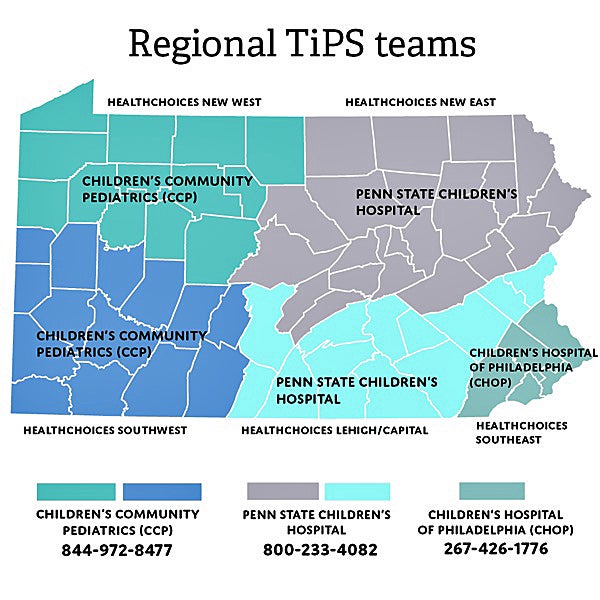 Tips Hotline MAP (Map via PA Dept of Human Services)
Tips Hotline MAP (Map via PA Dept of Human Services)
David Rubin directs the PolicyLab at the Children’s Hospital of Philadelphia and has long been involved in the efforts to cut down prescriptions for issues such as attention deficit disorder, post traumatic stress or depression for young patients.
Rubin says that the hotline will allow doctors to talk through different treatment options and get a second opinion on complex cases of mental illness and trauma.
“I think families and clinicians often feel helpless because they don’t know what services kids might have access to that could be an alternative,” said Rubin.
For this group of kids, he continued, just getting to an appointment with a doctor is often a complicated process. The hotline is designed to make the most of the brief time doctors see their patients.
” Just at the ground floor level of can I help this kid today?” he said. “Being able to pick up that phone and have someone answer on the other end of the like to help you think about that case in a diff way is going to be really helpful.”
A state-commissioned Policy Lab study lead by Rubin found that in 2012, Medicaid-eligible kids in foster care were three times more likely to be prescribed the drugs than other kids insured by Medicaid.
CHOP facilitates the hotline service in southeastern Pennsylvania, and is part of a larger plan by the state’s Department of Human Services to manage behavioral healthcare for kids more effectively. Now, all psychotropic medications must go through a prior-authorization process. And state is also implementing a best-practices guide for doctors regarding medication, as well as digitizing care plans for foster kids to improve coordination.
Rubin says the question of why kids on Medicaid and in foster care were prescribed psychiatric medication at such high rates is complicated.
“They both have higher needs.” Rubin explained. “But, they also don’t have a lot of people who know them very well. So it’s very easy to label a youth in foster care. And it’s also unclear who advocates whether medication is prescribed or taken away.”
He hopes that by offering doctors and families a second opinion and alternatives to medication, kids will have more options and advocates during times when they are most vulnerable.
WHYY is your source for fact-based, in-depth journalism and information. As a nonprofit organization, we rely on financial support from readers like you. Please give today.


